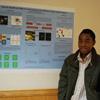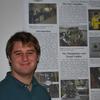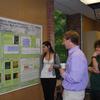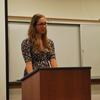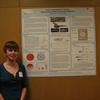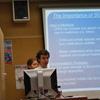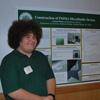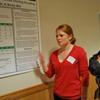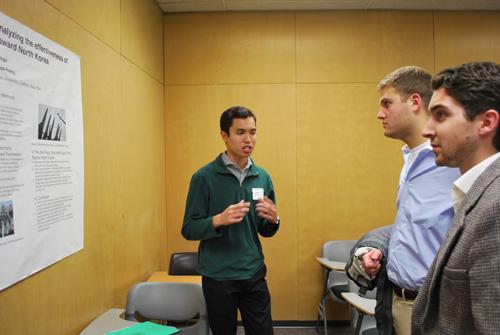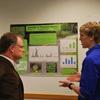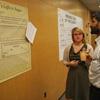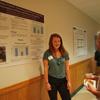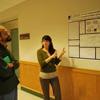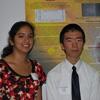Topics are far-ranging at Undergraduate Research Conference
Microfluidic devices. Tensegrities. Neologisms. Garlic mustard.
These are just a few of the topics that students at seven upstate liberal arts colleges
explored in laboratories, libraries, observatories, caves, schools, theaters, and
forests this summer. Accompanied by the faculty members with whom they conducted their
research, just over 100 met Saturday at ��Ȧ to report their results.
It was the first Undergraduate Research Conference sponsored by the New York Six
Liberal Arts College Consortium, created in 2009 by six upstate colleges - Colgate,
St. Lawrence, Hamilton, Hobart William Smith, Union and ��Ȧ - to encourage inter-institutional
collaborations and cost-savings. It also was the first time that this many students
and faculty from such diverse fields at these institutions (plus Siena College and
the College of St. Rose) had met to present their work and discuss the challenges
and rewards of creating new knowledge.
As conference organizer Bob Turner, associate professor of government at ��Ȧ,
marvelled: "This is like going back for a day to a great liberal arts college."
Among the presentations:
- Union College computer science major Benjamin Humphreys described his effort to generate a genetic algorithm that can design a robot that can be thrown over walls, dropped out of planes, and stepped on, and "naturally reform once the abuse ends" - a "tensegrity" structure;
- ��Ȧ chemistry major Brenda Olivo described the success of her efforts to make microfluidic chips - essentially, "labs-on-a-chip" - from a low-cost materials like transparency film;
- St. Lawrence College English major Jennifer Thomas reported on her analysis of William Faulkner's use of "neology" - the coinage of new words - in Light of August. The work contains more than 500 neologisms, which "subvert the gendered and racial binaries by which Southern society was structured in the late 19th and early 20th centuries."
By a happy coincidence, two teams of student researchers who had studied the spread
of invasive species in forests adjacent to their campuses - ��Ȧ's North Woods
and Hamilton's Kirkland and Rogers glens - wound up beside each other in an afternoon
poster session. Each even had focused on the spread of Alliaria petiolata, otherwise known as garlic mustard.
"It was great to see what they're doing," said Charlie Glassberg, who, as a North
Woods steward, was part of a team that pulled 15,000 garlic mustard plants out of
the North Woods this summer.
A major aim of the conference was to give the students a sense of what graduate school
will be like. For Colgate biology major Tinashe Nyanhete, it was the first time he
had confronted the challenge of organizing his results on a poster.
"I spent a whole week on it," he said. "It was tough but fun."
So successful was the event that plans already are being made to repeat the conference
next year, either at ��Ȧ or at another New York Six institution.
"This is a great opportunity for students to show off what they did over the summer
and share it with others outside the campus," said Kristen Fox, associate professor
of chemistry at Union and director of undergraduate research.
